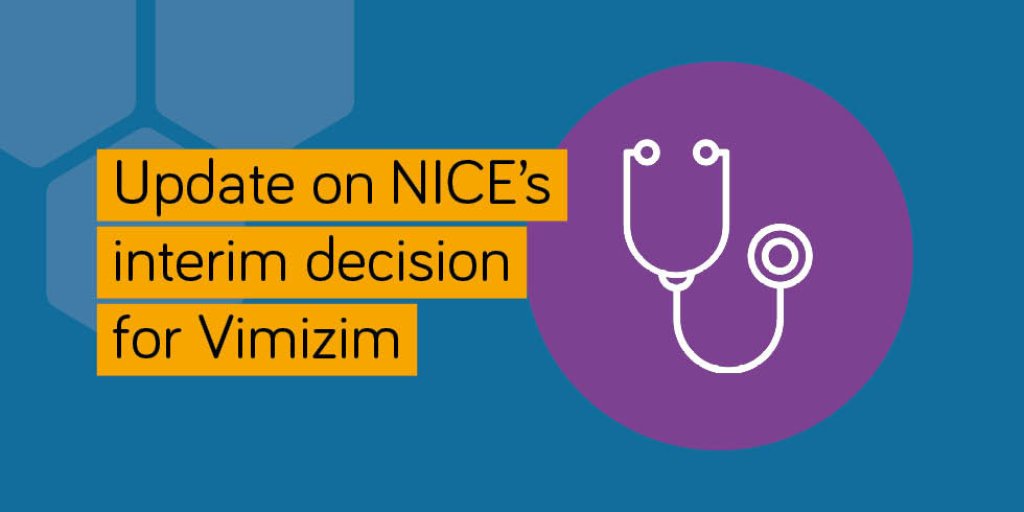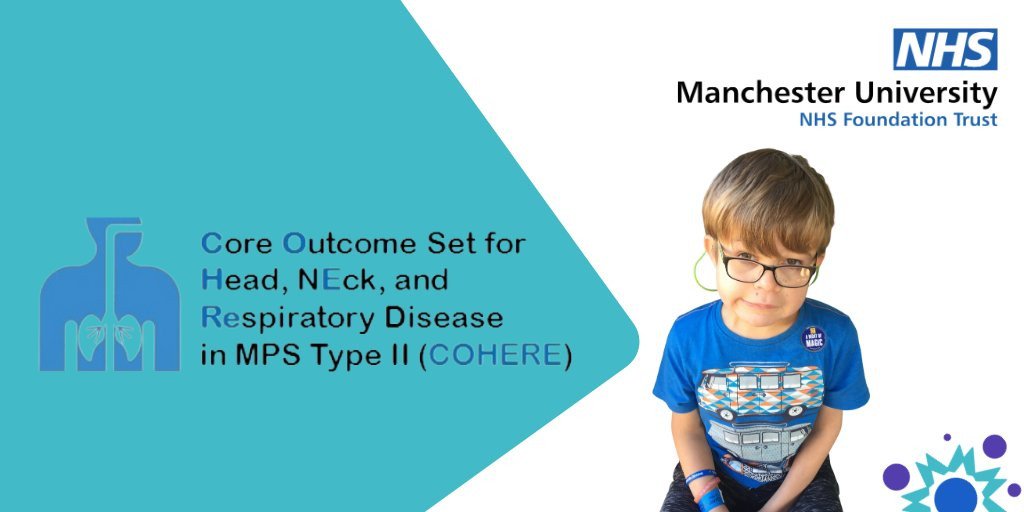NICE (National Institute of Clinical Excellence), the drug decision making body in England, have publicly released their interim decision today (12 November 2021) not to recommend elosulfase alfa (Vimizim®), for the treatment of individuals with MPS IVA. The full decision and committee papers can be found here.
Elosulfase alfa was developed by BioMarin and licensed by the European Medicines Agency in April 2014 and was first evaluated by NICE in 2015. At that time NICE concluded that some of the long-term outcomes of treatment remained uncertain, but it was agreed that treatment would be made available via a five-year managed access agreement. This has allowed eligible patients to access treatment while additional data was collected and has been running since December 2015.
NICE’s current decision relates to a re-evaluation of elosulfase alfa, that includes the additional evidence collected during the period of managed access. The clinical trial evidence and data collected as part of the managed access agreement showed long-term stabilisation of MPS IVA and extra health and quality-of-life benefits of treatment that were substantial. Determining the cost effectiveness of a treatment in the NICE process relies on modelling and many issues with the model used were raised by the committee. They concluded that the cost-effectiveness estimates were much higher than those considered acceptable for highly specialised technologies, and that elosulfase alfa is not an appropriate use of NHS resources.
This is not NICE’s final decision, and the committee is proposing to meet again on the 13 January 2022 following review of the feedback from consultees and members of the public. Members of the public have until the 3 December 2021 to submit their views and feedback to NICE. The evaluation committee will then reconsider the evidence and their decision at the proposed meeting in January.
The managed access agreement has been extended until 31 March 2022, to allow continued access to treatment while NICE concludes its re-evaluation. NICE’s final recommendation will apply only to people newly diagnosed with MPS IVA. Continued access to elosulfase alfa for those already having treatment will be discussed separately by the company and NHS England.
Representatives from the MPS Society, the patient organisation that supports those with MPS IVA and similar rare diseases have stated:
"We are devastated by the announcement from NICE that patients could be denied the only treatment available that slows progression of this disease and has such a positive impact on patients’ health and quality of life. We feel let down by the process of re-evaluation that has not been able to consider all the new evidence presented and the meaningful benefits to patients in its cost effectiveness determination. Our patient community have made significant sacrifices over the last six years to follow the conditions of the managed access agreement and complete the numerous assessments that were required to provide NICE with additional data. These very same patients are now facing great uncertainty as their future is no longer in the hands of NICE but will rely on negotiations between BioMarin and NHS England.”
“As a patient organisation, we will continue to engage with the NICE process and work with all those involved to ensure that our patient community is treated fairly and information that relates to their access to treatment is communicated clearly and in a timely manner.”
"We are devastated by the announcement from NICE that patients could be denied the only treatment available that slows progression of this disease and has such a positive impact on patients’ health and quality of life."
About MPS IVA and treatment
MPS IVA is a rare and progressive disease, that causes a wide spectrum of symptoms that severely impact the quality of life of people with the condition, and their families and carers. Patients have short stature with joint and skeletal abnormalities, respiratory symptoms including airway obstruction, hearing loss, corneal clouding and heart valve abnormalities. The condition also causes pain, fatigue, progressive loss of endurance and increasing dependence on a wheelchair. It leads to reduced life expectancy, primarily through respiratory failure and heart problems.
Before elosulfase alfa, the only treatment option was standard care, which aims to relieve symptoms and included several treatments such as corticosteroids and bronchodilators to improve lung function and spinal and orthopaedic surgeries. Since December 2015, the majority of eligible patients have joined the managed access agreement and received treatment with elosulfase alfa and met the criteria to remain on treatment. These criteria set out both clinical and quality of life measures designed to ensure that treatment was directed to those who derived benefit from it.
About the MPS Society
www.mpssociety.org.uk
Contact
Bob Stevens (Group Chief Executive Officer)
Sophie Thomas (Senior Head of Patient Services and Clinical Liaisons)



